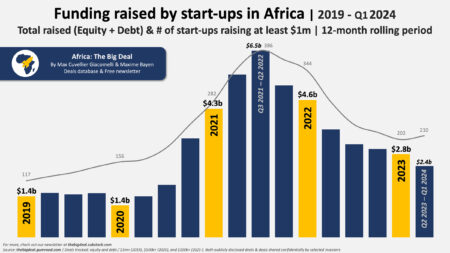- Covid-19 worsening socio-economic effects of mental health
- Governments urged to enforce mental health programmes at workplaces
- Employers to establish mental health programmes for staff
It is estimated that mental illnesses will cost the World well over $6 trillion by 2030. Most of these costs are due to productivity losses associated with mental illness.
While many African countries are not placing emphasis on mental illness issues, however, mental illnesses are behind increasing cases of absenteeism at work and generally low productivity of the workforce.
You may be new to the phenomenon of presenteeism, but you, as many working-class Africans, may, unfortunately, be suffering from it. It refers to reduced productivity while physically present at work due to mental illness related distractions.
To make matters worse, the global economy has been devastated by the Covid-19 pandemic and Africa is no exception. Couple the hard reality to the worsening cases of mental illnesses then you can see the dire threat on recovery efforts.
Also Read: East Africa Losing Unknown Billions To Alcoholism
Already African economies are suffering from contraction of national economies, and more and more people living in poverty. The pandemic has severely undermined years of economic development that had been achieved on the continent.
“The journey to recovery will be a long and difficult one for African economies and will be strongly dependent on the resilience and productivity of the workforce,” warns a report by Professors John Joska and Crick Lund of the Department of Psychiatry and Mental Health, University of Cape Town.
Owing to the importance of understanding and mitigating mental illness effects in the workplace, the two professors have received funding from Prudential Africa for research on mental health workplace programmes in Africa.

In the resulting report titled: ‘Boosting Africa’s recovery by investing in mental health, the authors caution that; “There is increasing global evidence that productivity in the workplace is profoundly influenced by mental health.”
Modern Day Ailments: What Is Mental Health?
Let’s first define mental health. According to the Lancet Commission on Global Mental Health and Sustainable Development: Mental health is the capacity of thought, emotion, and behaviour that enables every individual to realize their own potential in relation to their developmental stage, to cope with the normal stresses of life, to study or work productively and fruitfully, and to contribute to their community.
That being the case, mental health is directly related to adverse poor communication at the workplace both for staff and management authorities.
Mental health is associated with poor management practices, low autonomy, effort-reward imbalance, unclear tasks or organisational objectives, occupational uncertainty and lack of value and respect in the workplace, all of which add up to low productivity at work.
“Despite the massive economic costs of mental illness, African countries have historically under-invested in mental health,” the report highlights.
According to the research finding, even though a minimum of 5%, of national health budgets, should be dedicated to mental health in low-income countries, most African countries still spend less than 1%.
Even though there is high-level policy commitment on paper in most African countries, however, allocation of appropriate budgets and human resources for mental health still lags woefully behind the rest of the world.
For example, in Ethiopia, Ghana, Nigeria and South Africa more than 90% of people living with mental illness do not receive any form of evidence-based care, the report points out.
Experts warn that the Covid-19 pandemic has had a worse impact on mental health. Due to the related economic impact of the pandemic which left millions without jobs and millions of others under-employed, mental health cases are worse due to elevated levels of stress, anxiety, social isolation and domestic disputes to mention but a few.
For example, a 2020 survey in Ethiopia found that the number of people experiencing depressive symptoms had tripled compared to pre-Covid-19 levels.
Read: More than rose flowers: Oserian workplace innovation, inclusivity awarded
The way forward: Socio-Economic Advantages Of Investing In Mental Health
Given the above explained socio-economic issues caused by mental health and in particular loss of productivity at the workplace and broken families at home, investing in mental health should be a priority for African governments and employers as well.
Considering this, researchers’ findings show that investing in mental health has the following shortlisted benefits for both work productivity and social well-being.
First, on the overall national economic returns, a global Return on Investment (RoI) analysis shows that for every dollar invested in treatment for depression and anxiety there will be a $2-5 RoI over the 15 years of the Sustainable Development Goals (2015-2030).
Then there is the matter of workplace improved productivity. By investing in mental health programmes, employees, both staff and management, will better perform their day to day tasks increasing the overall company productivity.
Back at home, mental health is responsible for many broken homes which in turn worsens the individual’s ability to be more productive and to enjoy overall improved well being.
For these and another slew of reasons, international development agencies, such as the World Bank, consider mental health not only as a health need but also a social and economic development priority.
“It is vital that African governments proceed with implementing the WHO Global Mental Health Action Plan (2013-2020), which has been endorsed by most UN member states and provides a road map for national investments in mental health,” the authors urge.
And: Mental health also needs to be included in national health insurance schemes, as part of universal health coverage. The WHO mhGAP programme provides a set of clinical and operational guidelines for scaling up mental health services in primary care and community settings and has now been implemented in over 100 countries.
As part of Covid-19 grants and economic stimulus packages given to African governments, there is a need to dedicate part of this funding to incentivise employers to protect and promote the mental health of their workforces.
Employers should establish workplace mental health programmes and this should be done as a compulsory part of good business practice.
For example, employers can promote mental wellness in the workplace by creating awareness about mental health and common problems like depression, anxiety and alcohol and other substance abuse.
Employers should enforce policies that reduce stigma and minimize shame and discrimination against mental illness. Employers should also prioritize interpersonal relations by better management of conflict and effective communication in the workplace.
Also Read: Suicide robbing Africa its most productive generation











